Famous Christians: Their Lives and Writings
Anonymous Authors
(Articles, etc. that lack author identification)
I have read many conference and missionary journals of the past. Sometimes these journals fail to indicate an author. I try to discover the author by googling key words, but sometimes my efforts fail. The articles are still wonderful and so I will group them here.
William Bramwell (1759-1818)
(Itinerant Methodist Preacher)
Bramwell was one of the most significant Methodist revivalist preachers in his time. You can learn much by reading about his life and ministry. I have gathered a few things to encourage you on a page devoted to his life.
Thomas Brooks (1608-1680)
(Puritan Pastor and Much-Loved Author)
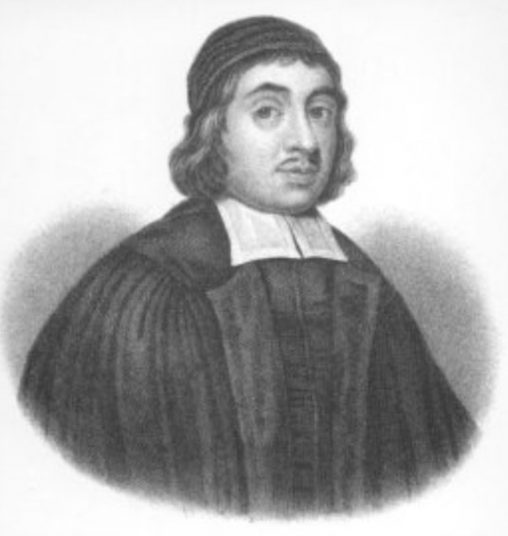
Thomas Brooks, (1608-1680) was a non-conforming Puritan pastor and author. His books are greatly loved. Lyrical in his writing, he produced wonderful words for quotations.
Sir. Thomas Fowell Buxton (1786-1845)
(English Abolitionist and Parliamentarian)
Sir Thomas Fowell Buxton, 1st Baronet was an English Member of Parliament, brewer, abolitionist and social reformer. Buxton was born at Castle Hedingham, Essex, England. His papers reveal a man who enjoyed wonderful communion with God, to say nothing of many answers to prayer.
Duncan Campbell (1898-1972)
(Scottish Revivalist)
Duncan Campbell participated in the revivals that swept through the Hebrides Islands. He was also the head of the Faith Mission for a time. His sermons and books are wonderful!
Amy Carmichael (1867-1951)
(Founder Dohnavur Orphanage)
Amy Carmichael founded the Dohnavur Orphanage at the tip of India and continued working there without taking one furlough for the next 55 years.
Samuel Chadwick (1860-1932)
(Spirit-filled Preacher, Author, Revivalist)
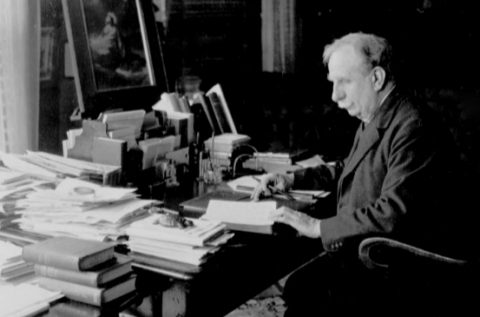
"When the Church is run on the same lines as a circus, there may be crowds, but there is no Shekinah. That is why prayer is the test of faith and the secret of power. The Spirit of God travails in the prayer-life of the soul. Miracles are the direct work of His power, and without miracles the Church cannot live. The carnal can argue, but it is the Spirit of God that convicts. Education can civilize, but it is being born of the Spirit that saves. The energy of the flesh can run bazaars, organize amusements, and raise millions; but it is the presence of the Holy Spirit that makes a Temple of the Living God. The root-trouble of the present distress is that the Church has more faith in the world and in the flesh than in the Holy Ghost, and things will get no better till we get back to His realized presence and power. The breath of the four winds would turn death into life and dry bones into mighty armies, but it only comes by PRAYER!"—Samuel Chadwick, Path of Prayer
Titus Coan (1801-1881)
(Missionary to Hawaii)
Titus Coan was one of the greatest missionaries that ever lived, though he is little known. He came to Hilo Hawaii in the 1830s when there were few Christians, and began ministering to the people. Wearing simple clothes, learning the local language, touring and visiting the people, using knowledge gained from working with Charles Finney, God worked through him to bring the people to Jesus. Soon thousands began to call on Jesus. Over time 15,000 people became Christians. For a period of two years 10,000 people came together for an extended camp meeting. You will be greatly inspired and instructed in reading about his ministry in Hawaii.
Charles Finney (1792-1875)
(Revivalist)
Charles Finney was the greatest revivalist who ever lived. Working in the Northeastern part of the United States in the 1800s, Finney's work resulted in the enduring conversions of hundreds of thousands of people. Having a legal background, Finney was able to reach the minds of people of all classes of society in a way that has rarely been seen in history. He also held pastor roles in many cities, including New York City. Later in life he was also the President of Oberlin College, where he not only advocated revival, but also insisted that "coloured people," using his terminology, would also be admitted. The admission of mixed races to Oberlin invited much opposition, but was pursued regardless. He also worked in England. His Lectures on Revival are perhaps the most important readings, aside from the Bible, to understand the way of revival, and his Memoires are also very helpful.
August Hermann Francke (1663-1727)
(Pietist, Spiritual Grandfather of Nicholas Zinzendorf and George Müller)
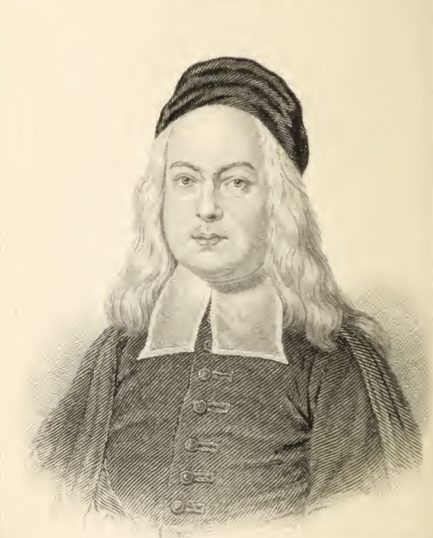
August Hermann Francke was a German Protestant churchman and one of the fathers of Pietism. Before the end of his life he founded the great orphanage of Halle where 2,000 orphans were cared for and inspired the future work of George Müller; actively supported university students ,one of whom Nicholas Zinzendorf went on to do a great work; an apothecary (pharmacy); publishing house; divinity school; and school for pastors.
James Fraser (1886-1938)
(Praying Missionary to the Lisu People)
James Fraser served the Lisu in the mountainous regions of China as part of Hudson Taylor's china Inland Mission. One especially learns about prayer in studying his life.
Jonathan (1859-1936) and Rosalind Goforth
Revivalist and Missionaries to China
Jonathan and Rosalind Goforth were sent as the first missionaries to Canada by the Candian Presbyterian Mission. As a result of reading of the Welsh Revival, Jonathan eventually became the leading revivalist in China in the early 20th century. Jonathan and Rosalind experienced many miracles and God used them to bring about many revivals. Many blessings are obtained in reading their books. Rosalind’s book How I Know God Answers Prayer is a classic and favorite book on prayer.His sermons on revival are to be treasured and learned from.
Louis Harms (1808-1865)
(Pastor and Founder of Missions)
Pastor Harms did an amazing work in (1) bringing a spirituality to his congregation that resulted in a seventeen year period of revival—only one person in the village did not appear to be a serious and devoted Christian; and (2) founding a mission enterprise which in seven years grew to include eight self-sustaining mission stations on multiple continents on 40,000 acres of land, several mission schools, a home for convicts, and a publishing ministry that had a circulation to 14,000 individuals. All of the gains came as a result of prayer. He was unfortunately in much pain almost all of his life, but saw the pain as a blessing since it allowed him to spend more time praying!
Frances Ridley Havergal (1836-1879)
(Hymn and Devotional Writer)
Frances Ridley Havergal was a precocious English poet who composed many religious poems. Born into an Anglican family at Astley. Her father was a pastor, composer and hymn writer. She led a fairly quiet life and suffered quite a bit of illness. She credited the little booklet All For Jesus with transforming her life. In addition to composing hundreds of poems, she also composed hymn tunes to go with some of them, wrote a book—Kept for the Master's Use, and several devotionals. She also memorized the gospels, the epistles, Revelation, the Psalms, Isaiah and the Minor prophets. She was also an accomplished pianist and singer. She kept up an extensive correspondence that was later used in preparing the memorial book that her sister put together. She eventually died of peritonitis at Caswell Bay in Wales. Many of her works were published after her death.
Praying John Hyde (1865-1912)
(Missionary to India and Prayer Warrior)
John Nelson “Praying” Hyde was an American Missionary who worked in the punjab region of India. From a Presbyterian minister’s family, his father prayed that God would raise up more ministers. John had not been initially planning to become a missionary, but changed his mind through God’s providential workings and the death of his brother. He left for India in 1892. On the way there, he read a letter from a friend who spoke of praying that John would be filled with the Holy Spirit. This initially angered John, but he later realized God was speaking through his friend, and he seriously sought for God’s help. It wasn’t easy for John to be a missionary because he was deaf and had difficulty learning the language. At first there were few converts and much persecution. To change the spiritual tide, John began praying for God’s blessings to come upon the missionaries, including spending entire nights in prayer for the mission. He attended the first Sialkot missionary conference in 1904. Afterwards he also started up the Punjab Prayer Union, in which members agreed to pray for thirty minutes each day for spiritual revival in India. It was while praying that he felt impressed that one convert would be won each day. Later he prayed for two converts each day. Eventually he felt impressed to pray for four converts each day. At the end of his life he returned to America where he died in 1912.
Griffeth John (1831-1912)
(Missionary to China)
Griffith John (1831 - 1912) was a Welsh Christian Congregationalist missionary to China and a pioneer evangelist with the London Missionary Society (LMS). He was also a writer and a translator of the Bible into Chinese. His sermons are practical and wonderful. He isn't that well known, but he obviously knew Jesus and was greatly blessed by the Holy Spirit in the things he shared.
Mary Lyon (1797-1849)
(Pioneer Educator)
Mary Lyon, the founder of Mount Holyoke Seminary for Women, was a pioneer educator who believed in combining academic rigor with moral education, and fitting her students to serve God. Her philosophy was carried by her students to other parts of the world where the sister instutions brought great blessings wherever they were established, including the Huguenot Seminary in Wellington, South Africa in which Andrew Murray played such a role.
J. Gregory Mantle (1853-1925)
(Writer on Holiness)
Gregory wrote four or five books. The best in my opinion was his Beyond Humiliation: The Way of the Cross. Over time more books will be added.
James McConkey (1858-1937)
(Writer on Holiness)
James McConkey is one of the most spiritual writers that I have been blessed to read. I urge you to take time to read from him.
F. B. Meyer (1847-1929)
(Holiness Author and Speaker)
F. B. Meyer was one of the most prominent Baptist pastors of his time. He pastored several churches, including Christ Church in London, that only had 100 people attending when he arrived. Two years later there were more than 2,000 attending. Fifteen years after coming to Christ Church Meyer began an intinerate ministry that took him to many places in the world. His last trips to America took place when he was 80. During his lifetime he preached more than 16,000 sermons. He was a frequent and very popular speaker at Keswick. One person describing his sermons said, "The phrasing of [Meyer's] sermons was simple and direct; he polished his discourses as an artist polishes a perfect stone. There was always a glowing imagery in his words; his speech was pastoral, lovely as an English valley washed in sunlight. In his day, great wars raged. Those who went to hear him forgot the battles." He was not only a preacher of righteousness, but he also worked against the social evils of his day, closing 500 houses of prostitution and opening a prison aid society. He wrote many wonderful Bible biographies and to be read!
Théodore Monod (1836-1921)
(French Preacher of Holiness)
Theodore Monod the son of Frederick Monod, was a French Protestant Pastor who initially studied law but then trained for the ministry at Western Theological Seminary in Alleghany, PA. From 1860 - 1863 he labored among the French Canadians in Illinois. He returned to Paris and his father’s pastorate in 1875. He was a popular speaker at the Keswick Camp meetings. Among the books I have found are Looking To Jesus, The Christian's Cross, Life More Abundant and The Gift of God. He also wrote wonderful poetry. One finds some of his sermons on the internet.
D. L. Moody (1837-1899)
(Spirit-filled Evangelist)
D. L. Moody was an American evangelist who founded the Northfield Schools in MA, Moody Church and Moody Bible Institute in Chicago, and the Colportage Association.
George Müller (1805-1898)
(Founder of Orphanage; Philanthropist)
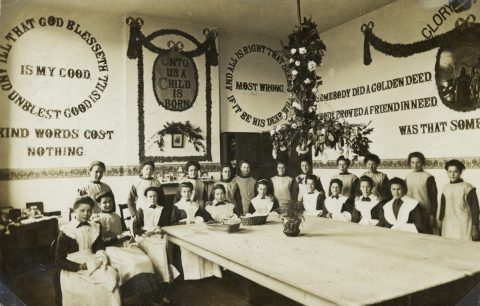
George Müller founded an orphanage in Bristol England. Not only was he able to establish an institution that could provide care for 2,018 orphans, but he did so without ever asking people people for financial support. He chose to only ask God, and God provided abundantly! In 1874 he testified that he had fed 2,100 people every day of that year. In addition to that he had supported 189 missionaries, sent £10,000 to support missionaries, paid the school fees of 9,000 children, published 4 million tracts and thousands of Bibles.
Andrew Murray (1828-1917)
(Writer on Prayer and Victory)
Andrew Murray was the second child of Andrew Murray Sr. (1794-1866), a Dutch Reformed Church missionary sent from Scotland to South Africa. In 1838, when Murray was ten, he and his brother John went to study in Scotland. They went to train with their uncle, the Rev. John Murray. In the spring of 1840 the revivalist William C. Burns came and spoke in Aberdeen, Scotland. Burns made a deep impression Andrew. Murray married Emma Rutherford in Cape Town, South Africa, on July 2, 1856. They had eight children together (four boys and four girls). Murray pastored churches in Bloemfontein, Worcester, Cape Town and Wellington, all in South Africa. He was a champion of the South African Revival of 1860.
John Nelson (1707-1770)
(Early Methodist Circuit Preacher in England)
John Nelson was considered one of the foremost pastors of the early Methodists during John Wesley's time. Originally working as a stone mason, he eventually worked full-time sharing the news of full salvation in England. He suffered much persecution from those who were opposed to Wesley's understanding of the Christian life, and was also strongly opposed by the Moravians. Reading his story, one better understands why John Wesley and Count Zinzendorf parted ways.
John Newton (1725-1897)
(Converted Slave Trader, Pastor, Hymn, Book and Letter Writer)
John Henry Newton was an English Anglican clergyman and former slave-ship captain. He was the author of many hymns, including "Amazing Grace."
William Patton (1821-1889)
(Writer)
William Weston Patton (1821, New York City - 1889), was president of Howard University, a fierce abolitionist and one of the contributors to the words of John Brown's Body. He was the son of Rev. William Patton and the grandson of Anglo-Irish Congregationalist immigrant and Revolutionary War Major Robert Patton. His lyrics to John Brown's Body glorified the violent acts of abolitionist. Julie Ward Howe later modified them to the hymn we know today as the Battle Hymn of the Republic.
W. W. Prescott (1855-1945)
Christ-Centered Pastor
W. W. Prescott was a deeply spiritual, Christ-centered preacher, educator and editor. He wrote a few books, wrote articles and preached many sermons. I have been blessed in reading them and share them here.
Helen Roseveare
(Christian Missionary to the Congo)
"Dr. Helen Roseveare was an English Christian missionary to the Congo from 1953 to 1973. Helen Roseveare went to the Congo through WEC International and practiced medicine and also trained others in medical work. She stayed through the hostile and dangerous political instability in the early 1960's. In 1964 she was taken prisoner of rebel forces and she remained a prisoner for five months, enduring beatings and being raped. She left the Congo and headed back to England after her release but quickly returned to the Congo in 1966 to assist in the rebuilding of the nation. She helped establish a new medical school and hospital (for the other hospitals that she built were destroyed) and served their until she left in 1973.
J. C. Ryle (1816-1900)
(Writer on Holiness and Spirituality)
John Charles Ryle was known as a thoroughly evangelical and uncompromising pastor and writer. The son of a wealthy banker, he shunned a calling to politics to become a pastor. He was spiritually awakened in 1938 while listening to the reading of Ephesians 2. He served various parishes, and served as Bishop, for 61 years. During this time he built 40 churches, became known for his essays on doctrine and became leader of the evangelical party of the Church of England. He retired at the age of 83 and died a year later. He wrote many many wonderful books. His book on Holiness is one of the best ever written on the subject.
A. B. Simpson (1843-1919)
(Author Church Founder)
A.B. Simpson was a Canadian preacher, theologian, author, and founder of The Christian and Missionary Alliance (C&MA), an evangelical Protestant denomination with an emphasis on global evangelism. He wrote many books on the Christian Life.
John Smith (1794-1831)
(Methodist Circuit Rider)
Born at Cudworth in Yorkshire, January, 1794, John Smith was a consecrated Methodist circuit rider who brought thousands of people to God. Smith was remarkable for his firm faith in God's great willingness to save the worst of sinners, for his love for prayer-meetings after public worship, and for his urgency upon sinners to receive Christ now, and be saved upon the spot. He laboured in London, Brighton, Windsor, Frome, Nottingham, Lincoln and Sheffield. He spent much time on his knees praying down God's blessings on his ministry. He died at the age of 37 in 1831.
Charles Spurgeon (1834-1892)
(Prince of Preachers)
C.H. Spurgeon was one of the foremost preachers to ever live. By the age of 21 he had become the most popular preacher in London even though he had attended no theological schools. For forty years thousands of people gathered to hear him preach in London’s Metropolitan Tabernacle.
J. Hudson Taylor (1832-1905)
(Pioneer Missionary to China)
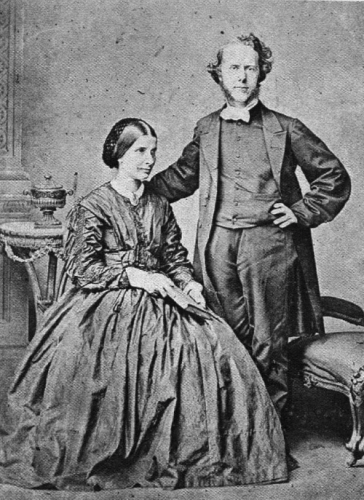
Hudson Taylor was born in London in 1832. Eventually accepting Jesus in his teen years, he began preparing himself for missionary service to China and a life of complete dependence on God, through living in an austere and “only ask God” lifestyle similar to George Müller. He served in China for 51 years and was instrumental in bringing 800 missionaries to China, founding 125 schools and bringing about the conversion of 18,000 Chinese. Sensitive to his Chinese milieu, he adopted the Chinese dress, including wearing a pig tail. He is credited with fostering the widest evangelistic effort since the time of Paul.
Gerhard Tersteegen (1697-1769)
(German Pietist)
Gerhard Tersteegen was a German Reformed religious writer and Pietist. As a result of the influence of Wilhelm Hoffman, a pietistic revivalist, he adopted the Pietist perspective and devoted himself to writing and sharing Jesus publicly, and withdrawing from all secular pursuits in order to do religious work. Among the few books available on him in English are, Recluse in Demand and Sermons and Hymns by Tait, The Life and Times of Gerhard Tersteegen and Spiritual Crumbs from the Master’s Table by Samuel Jackson.
Charles Trumbull (
(Writer on Holiness and witnessing)
Charles Trumbull was the editor of a Christian magazine for many years, played a key role in organizing and promoting the Keswick movement in North American, and authored several helpful books. I have personally been blessed by his book Victory in Christ and the related volume that was taken from some of his lectures in New Jersey in 1915, as well as his Taking Men Alive book on soul-winning. The latter volume gave me a new perspective on soul-winning and new skills and has allowed me to have serious conversations with almost everyone I meet when traveling.
John Welch (1568-1622)
(Mighty Scottish Man of Prayer)
John Welch was a mighty man of prayer who served God in Scotland during difficult times. He believe that a day was wasted when seven to eight hours were not spent in prayer. He often woke up during the night to pray. Once questioned by his wife, he responded that God had put 3,000 souls on his heart.
John Wesley (1703-1791)
(Founder: Methodist Church; Holiness Hero)
John Wesley founded the Methodist church along with his brother Charles. In contrast to George Whitefield’s Calvinism, Wesley embraced the Arminian doctrines that were dominant in the 18th-century Church of England. Methodism in both forms was a highly successful evangelical movement in the United Kingdom, which encouraged people to experience Jesus Christ personally. Wesley’s writing and preachings provided the seeds for both the modern Methodist movement and the Holiness movement, which encompass numerous denominations across the world. In addition, he refined Arminianism with a strong evangelical emphasis on the Reformed doctrine of justification by faith.
Susanna Wesley (1669-1743)
(Mother of Methodism)
Susanna Annesley Wesley was the daughter of Dr. Samuel Annesley and Mary White, and the mother of John and Charles Wesley. Though she never preached a sermon or published a book, or founded a church, her untiring, highly disciplined efforts in raising her children in spite of the most adverse circumstances, and the great spirituality of personal life, played a significant role in bringing about the development of the Methodist church. The last of twenty-five children in her maternal home, she had nineteen children, of which ten survived childhood. (Learn more about Susanna Wesley)